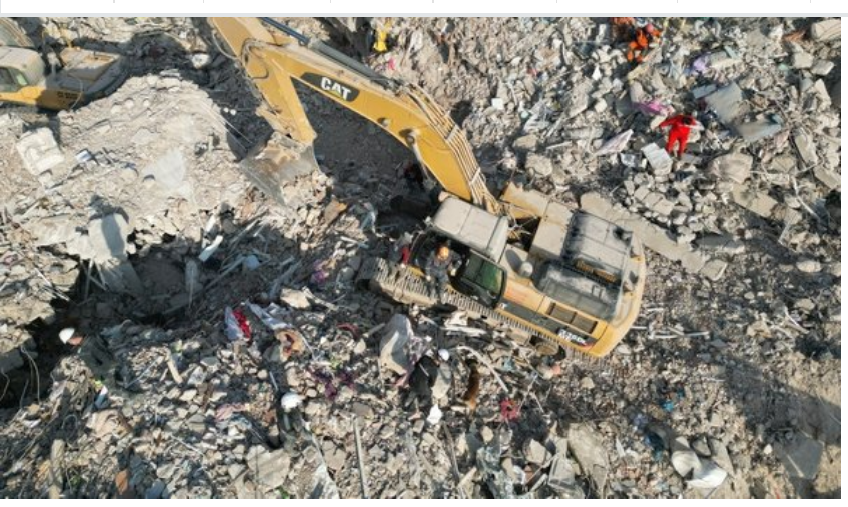The two deadly earthquakes that devastated Turkey’s southeast early this month are estimated to have cost $34.2 billion in physical damages, or about 4% of 2021 gross domestic product, according to a preliminary assessment by the World Bank.
The lender will also revise its 2023 GDP forecast for Turkey down by half a percentage point from its initial 3.5%-4% estimate, World Bank Turkey Director Humberto Lopez told reporters on a call Monday after presenting the assessment.
Reports of the impact of the disaster vary widely. Bloomberg Economics calculated that the quakes could shave off 1% of this year’s GDP, while JPMorgan Chase & Co said in a report that direct costs from the destruction of physical structures may reach $25 billion, or 2.5% of the country’s GDP, with risks to the upside.
More than half the costs stem from residential buildings, the World Bank said, adding that “extensive” damage to infrastructure, including railways, highways and bridges, has also been taken into account.
The analysis excludes indirect or secondary effects of the tremors that killed more than 44,000 people in Turkey and Syria.
The group said recovery and construction costs could double when other factors such as increased prices and the cost of emergency responses are considered. “Based on global experience, recovery and reconstruction costs will be much larger” than the estimates.
Eventaully, rebuilding in the 11 provinces affected by the February 6 quake and its aftershocks could cost up to $68bn, with residential buildings, schools, hospitals and public infrastructure all requiring repair work, the World Bank said on Monday. More than 105,000 buildings have been heavily damaged or have collapsed, the Bank added.
“This disaster serves as a reminder of Turkey’s high risk to earthquakes and of the need to enhance resilience in public and private infrastructure,” said Humberto Lopez, World Bank country director for Turkey.
Facing an election within months, President Tayyip Erdogan has pledged to rebuild homes within a year, although experts have said the authorities should put safety before speed. Some buildings that were meant to withstand tremors crumbled in the latest earthquakes.
“For several projects, tenders and contracts have been done. The process is moving very fast,” the official said, speaking on condition of anonymity, adding there would be no compromise on safety.
The UNDP said it estimated that the destruction has left 1.5 million people homeless, with 500,000 new homes needed.
It said it had requested $113.5 million from the $1 billion in funds appealed for by the United Nations last week, adding that it would focus this money on clearing away mountains of rubble.
The UNDP estimates that the disaster had produced between 116 million and 210 million tons of rubble, compared with 13 million tons of rubble after the earthquake in northwest Turkey in 1999.
Follow our English language YouTube videos @ REAL TURKEY: https://www.youtube.com/channel/UCKpFJB4GFiNkhmpVZQ_d9Rg
And content at Twitter: @AtillaEng
Facebook: Real Turkey Channel: https://www.facebook.com/realturkeychannel/
